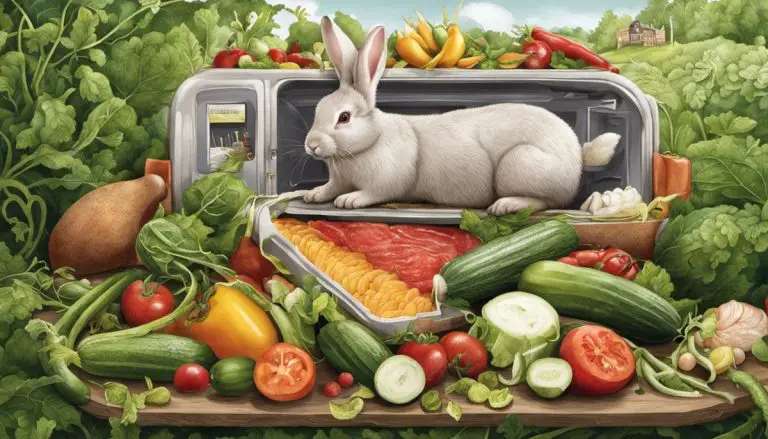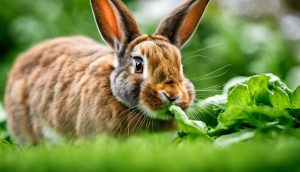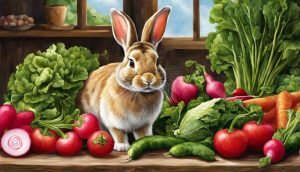Rabbits, with their twitching noses and cotton-puff tails, are endearing creatures that require careful consideration when it comes to their diet. Discovering what works best for your little friend is inevitably a process of trial and error. This discussion delves into the little-explored world of feeding cucumbers to rabbits — an evaluation of their digestive system and its relation to this popular vegetable. Turning under the microscope the nutritional content of cucumbers and how it matches up against a bunny’s dietary needs, we recognize the importance of maintaining balance in the food pyramid for the optimal health of these furry creatures.
Can Rabbits Safely Digest Cucumbers
Understanding a Rabbit’s Digestive System
Rabbits have a unique and complex digestive system, which is structured to break down a diet comprising mainly of hay, grass, and leafy greens. These are rich in fiber and assist in maintaining a healthy gut. Bacteria in the rabbit’s cecum (part of the intestinal tract) work to ferment fibrous matter and convert it into beneficial nutrients. Hence, it’s crucial to ensure the food given to rabbits does not upset this delicate balance.
Cucumbers in a Rabbit’s Diet
Providing your rabbits with cucumbers is perfectly safe, but it’s crucial to do it in moderation. Although cucumbers contain no harmful or toxic elements, they aren’t very nutritious due to their high water content. Hay should remain the primary food in your rabbit’s meal plan, thanks to its rich fiber content. Too much cucumber intake can potentially cause digestive troubles, like diarrhea, due to its high water composition. Hence, it’s crucial to introduce cucumbers slowly and look out for any adverse reactions in your rabbit. Although cucumbers can provide a refreshing treat, it’s vital to ensure they make up a minor component of a well-rounded rabbit diet.
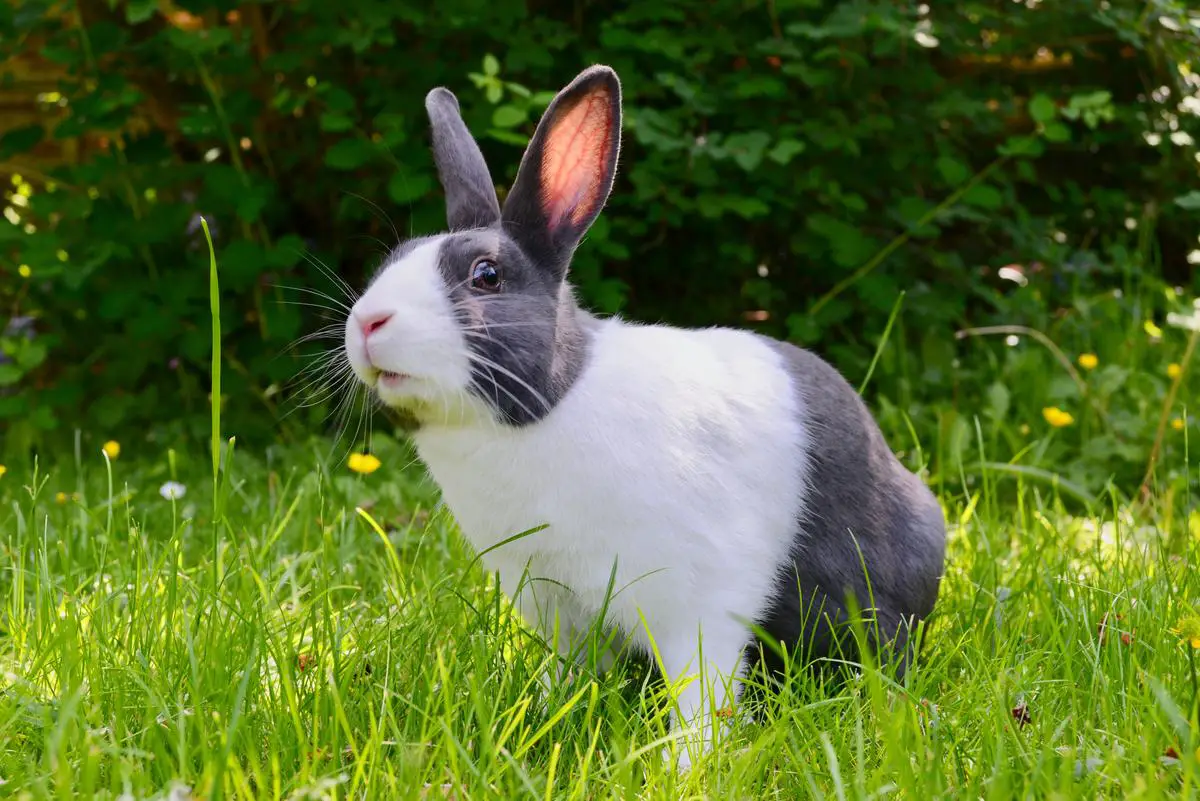
Nutritional Value of Cucumbers for Bunnies
The Nutritional Make-Up of Cucumbers
Cucumbers significantly consist of water, nearly 95%, making them low in calories, protein, fat, fiber, and sugar. This composition renders them an ideally refreshing and hydrating snack for your bunnies. However, they do include some crucial vitamins and minerals. Cucumbers are a good source of Vitamin K, Vitamin C, and Potassium. Despite this, the quantities present are not vast enough to exceptionally influence a bunny’s dietary routine.
The Impact of Cucumber’s Nutrients on Bunnies’ Health
When it comes to bunnies, they need a balanced diet that is high in fiber and low in sugar. Fibrous food is essential for a rabbit’s digestive system to function properly. Although cucumbers are fiber-deficient, they can still form part of a balanced diet when given in moderation due to their high water content which helps bunnies to stay hydrated. As cucumbers contain Vitamin K, it aids in blood clotting, keeping a bunny’s circulatory system healthy. Vitamin C, on the other hand, is not a necessity for bunnies as they naturally produce it. Lastly, while the presence of potassium in cucumbers supports the heart and kidney functions, it’s important to note that rabbits would still need a bigger variety of vegetables and hay to ensure their nutritional needs are met, as the mineral amounts found in cucumbers are minimal.
Cucumbers, despite not being capable of providing every essential nutrient required for a bunny’s health, can be included as part of a balanced diet for your rabbit. It’s merely essential to ensure that cucumbers are not their sole source of sustenance. As with introducing any new food to a rabbit’s diet, it’s important to initially provide it in small portions and monitor carefully for any adverse reactions.
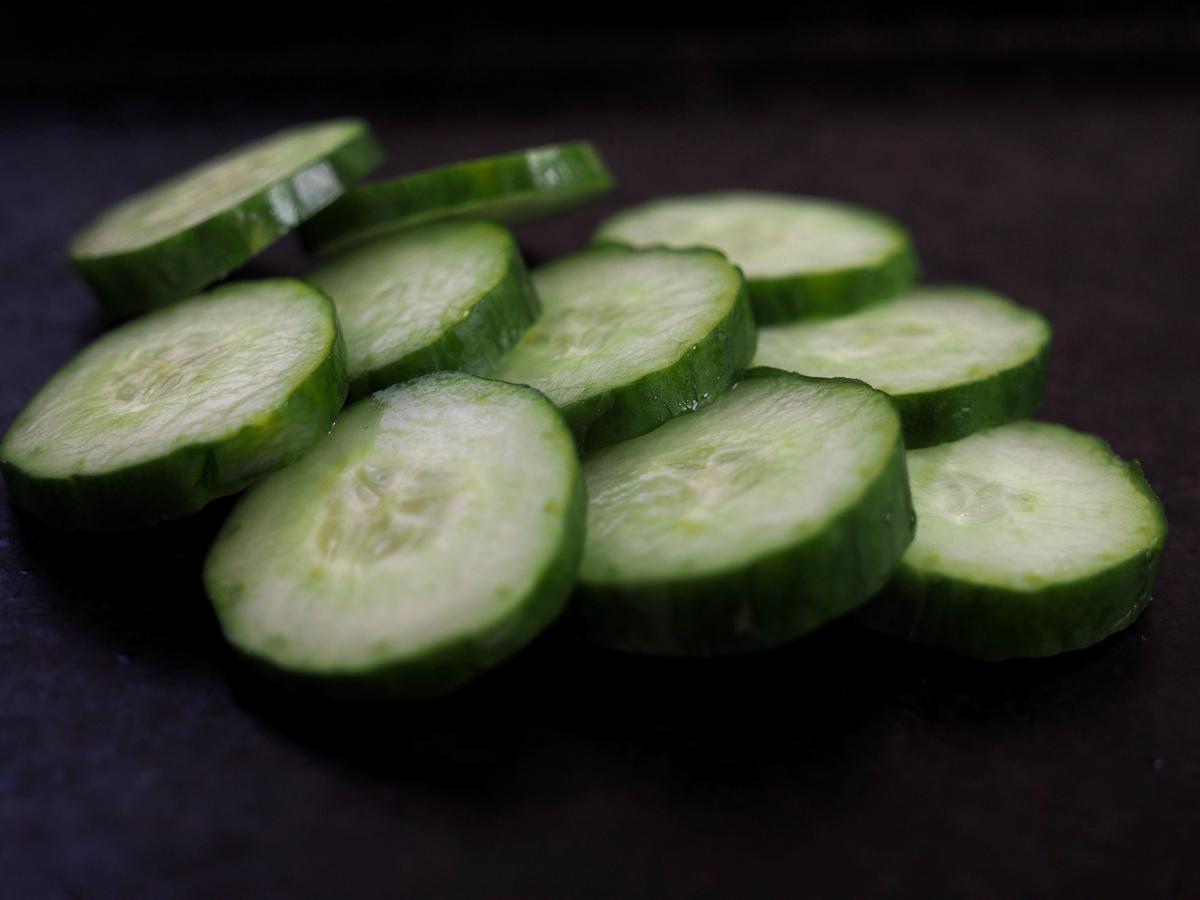
Photo by lucieduci on Unsplash
Balancing Cucumbers with Other Foods in a Bunny’s Diet
Integrating Cucumbers into a Rabbit’s Diverse Diet:
It’s appropriate for bunnies to consume cucumbers, given that cucumbers contribute important hydration and are a beneficial source of fiber. However, restraint is essential in deciding the cucumber portion sizes for a bunny’s diet. Ideally, cucumbers should comprise only 10-15% of a rabbit’s total food intake, as they miss some vital nutrients required for the overall well-being and growth of rabbits. These include vitamins A and D, calcium, and the type of fiber found in hay. The primary ingredient of a rabbit’s diet should be hay, as it supports their digestive health and assists in keeping their continuously growing teeth in check, thereby avoiding dental complications.
The frequency of feeding cucumbers to bunnies matters as well. As with all fruits and vegetables, cucumbers should be introduced slowly into the diet, starting with a tiny piece to observe any ill-effects. Then, if no issues arise, the quantity can be gradually increased up to a full slice per day. However, it’s critical to monitor your rabbit’s bowel habits as too much water content from cucumbers and similar vegetables can lead to diarrhea. Furthermore, balance is important for a bunny’s diet. Alongside cucumbers, fresh foods like leafy greens and other vegetables should be included, and treats such as fruits and certain vegetables should be kept minimal due to their high sugar content.
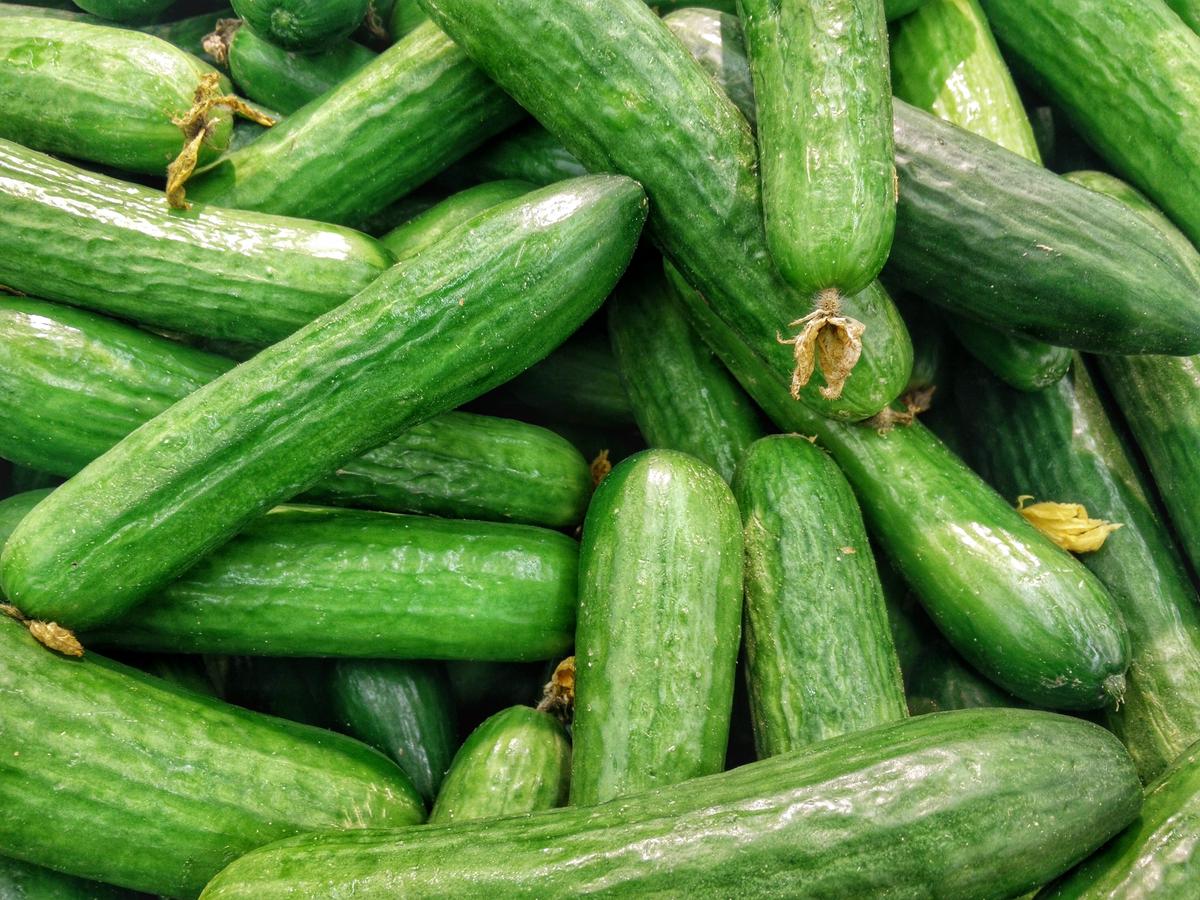
Photo by harshalhirve on Unsplash
Regardless of the food, the basic rule of thumb is always moderation and variety when it comes to a rabbit’s diet. A dissected look into the world of cucumbers and rabbits proves that while cucumbers can be happily consumed by bunnies, they shouldn’t form the bulk of their diet. Other nutrient-rich foods and high-fiber hay remain necessary for their overall wellbeing. When cucumbers are judiciously introduced into the balance, they can contribute towards making mealtime a pleasing experience for your bunny, while supporting their health. By understanding these creatures better, we continue to pave the way towards healthier, happier rabbit companions.

